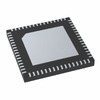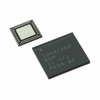Manufacturer Part Number
TUSB8041RGCR
Manufacturer
Texas Instruments
Introduction
The TUSB8041RGCR from Texas Instruments is a high-performance USB 3.0 hub controller with enhanced capabilities for interfacing USB, GPIO, I2C, and SMBus peripherals.
Product Features and Performance
Offers one upstream port and four downstream ports for USB 3.0 connectivity
Integrated USB 2.0 and USB 1.1 hub functionality
Battery charging support 1.2 (BC 1.2) for downstream ports
Supports both individual and ganged power switching and overcurrent protection
Configurable via GPIO, I2C, or SMBus
Automatic link power management to reduce power consumption
Product Advantages
Enables high-speed USB 3.0 data transfer up to 5 Gbps
Backward-compatible with USB 2.0 and USB 1.1 devices
Simplifies system design with integrated PHYs and terminations
Supports industrial temperature range
Minimal external components required due to integrated features
Key Technical Parameters
Operating Voltage: 1.1V, 3.3V
Operating Temperature: 0°C ~ 70°C
Interface: USB, GPIO, I2C, SMBus
Standards compliance: USB 3.0
Packaging: 64-VFQFN Exposed Pad
Quality and Safety Features
Overcurrent protection for each USB port
ESD protection on USB pins
Compatibility
Compatible with USB 3.0, 2.0, and 1.1 devices and hosts
Interface support for GPIO, I2C, and SMBus connections
Application Areas
Used in desktops, laptops, docking stations, monitors, and other peripherals requiring USB hub functionality
Ideal for applications requiring multiple USB connections and high-speed data transfer
Product Lifecycle
Currently Active and maintained by Texas Instruments
No near-term discontinuation, with ongoing support and potential for newer revisions
Several Key Reasons to Choose This Product
High-speed USB 3.0 support enhances data transfer rates significantly
Broad compatibility with various USB standards and devices
Integrated features reduce additional component needs, simplifying design and lowering overall cost
Texas Instruments' proven reliability and support
Flexible configuration options through GPIO, I2C, or SMBus for varied application needs
Comprehensive quality and safety provisions ensuring robust performance in diverse environments




 TUSB8041ARGCTTexas Instruments
TUSB8041ARGCTTexas Instruments TUSB8040PFPTexas InstrumentsIC HUB CONTROLLER USB 80HTQFP
TUSB8040PFPTexas InstrumentsIC HUB CONTROLLER USB 80HTQFP TUSB8040ARKMTTexas InstrumentsIC HUB CONTROLLER USB 100WQFN
TUSB8040ARKMTTexas InstrumentsIC HUB CONTROLLER USB 100WQFN